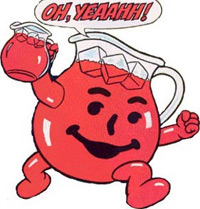IMF
IN APRIL, THE World Bank’s executive directors selected Dr. Jim Yong Kim to serve as its president. Kim, whose five-year term begins in July, will be the first World Bank president whose primary experience is in community-level development. Most of his predecessors were bankers or politicians.
As a co-founder of Partners in Health, an international nonprofit dedicated to “a preferential option for the poor in health care,” and as a former director of the HIV/AIDS department of the World Health Organization, Kim has done groundbreaking work in delivering essential medicines for the treatment of AIDS to impoverished countries. He has a proven capacity for designing effective solutions to real problems. His election may well usher in a new culture at the World Bank—a culture that focuses not on economic growth that doesn’t trickle down, but on poverty reduction that is real.
For almost 70 years, the World Bank and the International Monetary Fund (IMF) have been major players in the global economy; the World Bank has 188 member countries, all of which must first be admitted to the IMF. In their many years of doing business, these institutions have reinvented themselves more than once. The World Bank’s focus has evolved from rebuilding Europe and Japan following World War II to supporting large-scale engineering projects in so-called “developing” countries; from emphasizing nutrition, population, and poverty in the 1970s to “adjusting” the economic policies of countries in the global South, beginning in the early 1980s.
As the negative impact of IMF policies and World Bank projects on impoverished people and their communities became increasingly evident, people of faith and grassroots groups around the world, particularly in the global South, began demanding change. They organized and advocated for greater transparency, accountability, and participation, insisting that failed strategies promoted and financed by the IMF and World Bank were related to hunger and other poverty-related problems, a growing rich-poor gap in almost every country, and environmental destruction.
Wall Street has been devastating Main Street for some time. And when the politicians -- most of them bought by Wall Street -- say nothing, it's called "responsible economics." But when somebody, anybody, complains about people suffering and that the political deck in official Washington has been stacked in favor of Wall Street, the accusation of class warfare quickly emerges. "Just who do these people think they are," they ask. The truth is that the people screaming about class warfare this week aren't really concerned about the warfare. They're just concerned that their class -- or the class that has bought and paid for their political careers -- continues to win the war.
So where is God in all of this? Is God into class warfare? No, of course not. God really does love us all, sinners and saints alike, rich and poor, mansion dwellers and ghetto dwellers. But the God of the Bible has a special concern for the poor and is openly suspicious of the rich. And if that is not clear in the Bible nothing is.
Andrew Berg, an International Monetary Fund African department policy adviser, is a nice man. I know this because he spent some time talking earnestly with me after an IMF press conference in which I'd asked a pretty confrontational question about Malawi, whose 2002 famine is often partly attributed to IMF (and World Bank) advice, and whose current bumper crops are attributed to ignoring it.
Berg looks a tiny bit like The X Files' Agent Skinner, but what this conversation [...]
 It's clear that one cause of the current food crisis is that poorer countries have been pressured into dismantling their food policies, leaving peasant farmers and eaters alike to bear all the risks of the extremely volatile world market. This has left corporations free to ship factory-farmed food to those countries, peasants free to migrate to urban slums, and corporately-dominated economic [...]
It's clear that one cause of the current food crisis is that poorer countries have been pressured into dismantling their food policies, leaving peasant farmers and eaters alike to bear all the risks of the extremely volatile world market. This has left corporations free to ship factory-farmed food to those countries, peasants free to migrate to urban slums, and corporately-dominated economic [...]